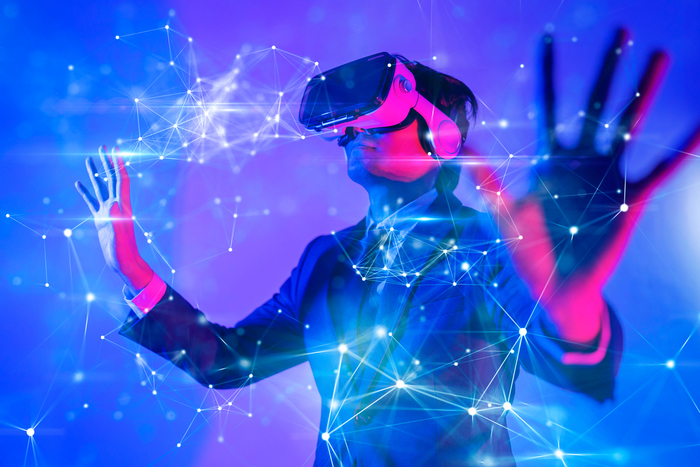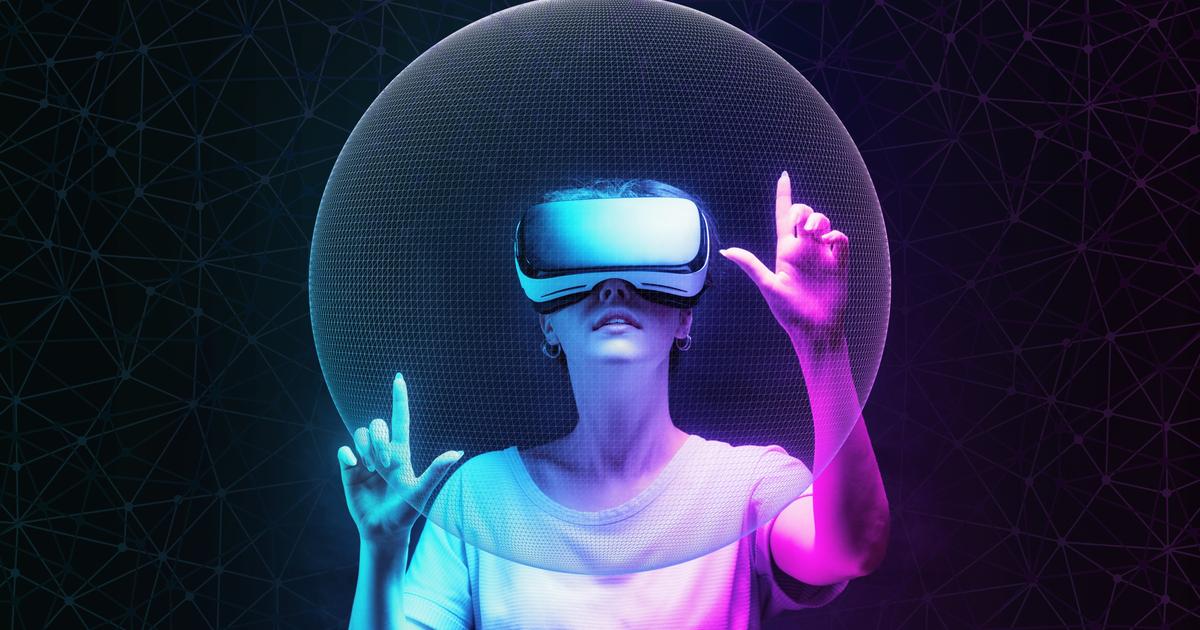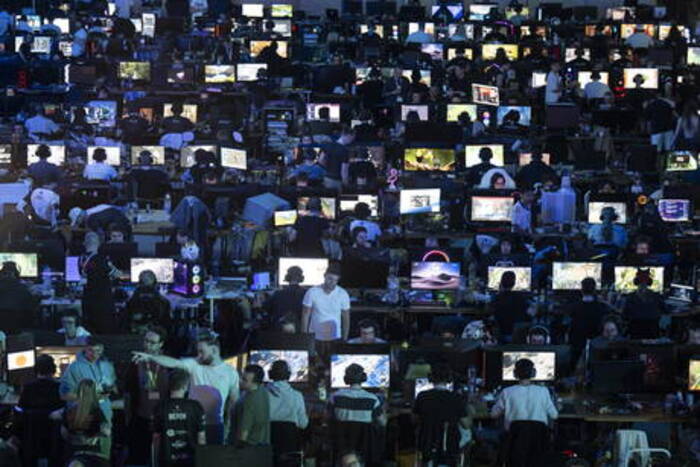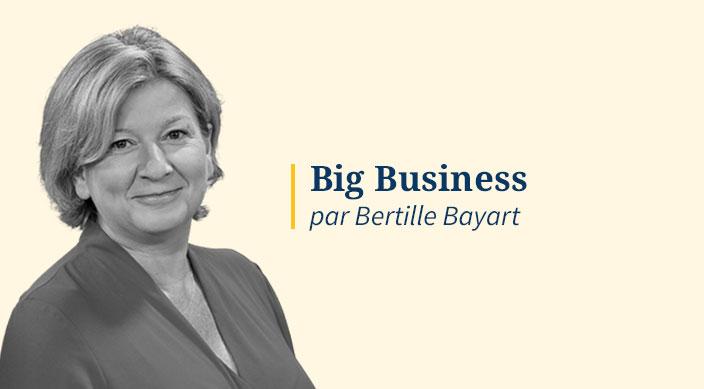'Techno-optimists'
, who see the future increasingly virtual and less real, in an identity crisis.
Looking at our past and present to predict where we will go thanks to technology has become difficult.
Life has started to run too fast in the last few decades and it is not so easy to analyze it, it escapes, it changes.
Therefore, making projections has become risky and even simplistic, with the hand of the business pushing to create trends and do business.
Are we becoming unpredictable?
It seems so.
The metaverse (science fiction term now in the limelight since Mark Zuckenberg married him for the management of his virtual creatures) blockchains, sustainable digital companies DTC (direct to consumer) and volatile art NFT (converted into digital codes / tokens) that has been talked about a lot since in early 2021 a 'non-fungible' work by digital artist Beeple - aka Mike Winkelmann - was sold for $ 69 million), will they really make a difference in 2022?
"No, even if they are really newborn and potential opportunities, they are still not up to the 'hypocritical' positioning of those who feed them and the current ability to impact or improve our world" specify a pool of designers, technologists, creative directors of human-centered organizations,
All overrated?
Techno-optimism will only improve the world if it stays grounded and fits our real needs.
Furthermore, two aspects validate these concrete doubts: the watches are no longer able to mark the time that passes because it has started to go faster, taking different directions suddenly and the new generations, those born with the tablet in the cradle and in which many hopes on the technological front aren't all that addicted.
The hitherto undisputed principle of efficiency, obsession of previous generations, seems to be failing because "
changes are pressing rapidly, creating an extremely fragile system that can easily collapse in times of great stress, like now"
, reads the focus.
Metaverse and augmented reality
There is a 'threatening arrogance' in the idea that
the metaverse (a science fiction term borrowed to define virtual activities that take place on the internet)
can dominate our experiences.
The concept is explained by Mark Rolston and Jared Ficklin, tech creatives at product design consultancy and hitech process idea incubator Argodesign, based in Austin, Texas: "The new Facebook version of the Metaverso hype is based on a selfish premise. that people will choose to escape from the "real world" to interact in a synthetic (and, of course, sponsored) one.
But this concept ignores what computing has already done for us, which is to add benefits to our real environment.
In other words, we want computers to work in our world, where our life takes place, such as at the table, on the train or walking with friends ”.
In short, there is a lot of hype around augmented reality but it will be 'mixed' reality that makes technology at our service,
Gen Z wants authenticity.
Predicting Gen Z tastes is wrong.
At least as regards the systems to attract their attention on social and online.
They are fluid guys, have an attention span of 8, maximum 12 seconds.
They seek fluidity through gender and other norms, so it is useless to investigate to identify aspects that appeal to them.
Companies, brands and online messages created to convince them by exploiting some principles that have worked until today will no longer work.
What is the problem?
“It's
a generation that doesn't want to be nailed down
. Individuality and their marked self-sufficiency require a whole new level of flexibility. They are always on the go and most brands will inevitably always lag several steps behind them. As always, brands are better off just being themselves, letting their flags fly in an authentic and bold way, ”said Kevin Grady, senior partner of the global creative consultancy Lippincott.
Nft art
In 2021, an NFT work by digital artist Beeple (aka Mike Winkelmann) sold for $ 69 million.
Since then, NFTs (non-fungible token, a special type of cryptographic token that represents the deed of ownership and certificate of authenticity written on the Blockchain of a unique asset (digital or physical)) have had a boom in trading volume, generating over $ 10 billion in the third quarter and a slew of brands and personalities vying for a slice of hype in the neo-NFT art world.
But to say that 2022 will see the spread of this type of 'virtual value' is wrong because 45% of US adults who use the internet have never heard of NFT and 28% do not understand them.
The identikit of who is interested instead?
Mostly one
niche of crypto-adepts collectors, often well-known and male characters
.
They are therefore in an experimental and nascent phase.
It will therefore take several more years and as long as there are 'stunts' of such value, the demand will not increase.
The false 'sustainability' of online brands
We are ecologists, concerned about the environment but not very aware “We order organic soap, wrapped in plastic.
We ship packages full of polluting packaging that end up in the trash, we subscribe to a toothbrush that promises smart charging with batteries and plastic accessories.
Billions of boxes, wrappers, tapes, labels, stickers, polystyrene, bubble wrap, every day.
It's time to stop and think before you're drawn to the next click to fill the virtual cart, and product lifecycle analysis should be mandatory and transparent.
The future for companies is towards the study, the creation of products with less packaging and pieces and a reduction in the distances of shipments (which, moreover, would also reduce costs or at least slow down the increases,
as the 9% recently announced by Ikea precisely for the cost of transport).
Items should be repairable, reusable and remanufactured.
The companies, explains Nichole Rouillac, creative director of New York's Level, in the report.
- they must be responsible in making products not only for marketing, to raise the flag of champions of sustainability but also of the real environmental sustainability of that product ".
Hybrid work is not enough
There is a lot of talk about the merits of remote work, we are greatly appreciating the formula of hybrid work, which has grown exponentially due to the lockdown and the pandemic situation, but it will not be the keystone of 2022 to improve businesses and the well-being of workers.
The future of work is to solve the traumas that make it toxic
.
Negative experiences, fears, doubts, physical harm, salary differences, injustices, lack of inclusiveness impact work environments, including virtual ones, making life and performance of workers very difficult.
“For remote and hybrid work to improve, businesses need to understand that trauma isn't just an individual problem, it's an organizational problem.
It's time to give us permission to prioritize the needs of human capital,
- explains Vivianne Castillo, founder and consultant for fair culture and innovation, of HmntyCntrd, (Humanity Centered) based in Chicago, an award-winning community of 450 professionals in 22 countries who focus on man in every job, consultancy and activity.



/cloudfront-eu-central-1.images.arcpublishing.com/prisa/DS76CS22FZADVL4PMWTQQDWZQI.jpg)




